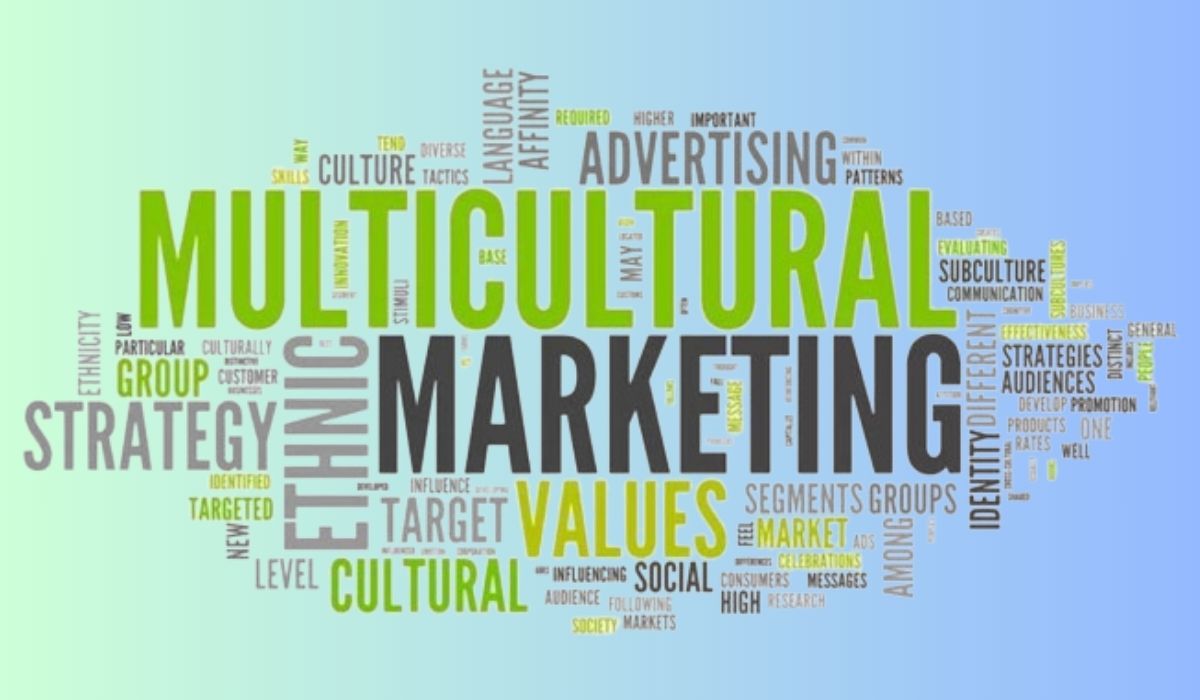Multicultural marketing has become an essential tactic for companies taking on a more diversified customer base in this age of globalisation. In today’s increasingly multicultural society, it’s crucial to recognise and meet the specific demands of different types of consumers if you want to stay ahead of the competition. The importance of multicultural marketing, its effects on companies, and how to effectively engage various consumers are all discussed in this article.
Understanding Multicultural Marketing
Beyond a cookie-cutter approach, multicultural marketing takes into account and values the unique qualities of different demographics. It entails modifying advertising campaigns so that they speak to the unique characteristics, beliefs, and tastes of target audiences. Whether a company is aiming its marketing efforts towards people of a certain age, ethnicity, or socioeconomic status, the goal of developing inclusive campaigns that engage meaningfully with diverse audiences remains the same.
The Business Case for Multicultural Marketing
Expanding Market Reach
Businesses can access previously unreachable customer bases by actively engaging in multicultural marketing. Businesses can reach more people and build relationships with customers from underrepresented groups if they make an effort to cater to varied demographics.
Building Trust and Loyalty
Establishing trust requires being genuine. Customer trust and loyalty are enhanced when brands show they truly value and respect different cultures. This bond extends beyond just making a purchase; it fosters loyalty to the brand throughout time.
Enhancing Brand Reputation
Brands that actively promote diversity and inclusion tend to have better reputations. Brands that share the ideals of today’s socially aware consumers are in high demand. A positive public impression of a firm can be achieved through multicultural marketing by positioning it as socially responsible.
Key Components of Multicultural Marketing
Cultural Competence
Businesses need to work on their cultural competency if they want to connect with various audiences. To do this, one must be familiar with the customs, language, and communication patterns of other groups. This way, marketing messages may be personalised to truly connect with each audience.
Inclusive Representation
Having a representative is influential. Advertisements and promotional materials that feature various faces, voices, and stories are part of inclusive marketing. Because of this, not only does the brand better represent the global globe, but customers are also able to identify with it and develop a stronger emotional connection.
Language Considerations
Language is an incredibly potent means of communication. In multicultural marketing, language preferences are carefully considered to guarantee culturally relevant and not merely translated communication. This method delves deeper than mere words to grasp the intricacies and spirit of other languages.
Challenges and Solutions
Avoiding Stereotypes
The potential for stereotyping to be reinforced is an obstacle in multicultural marketing. Avoiding cliches that could cause confusion or exclusion is crucial for businesses when depicting various communities. The solution to this problem lies in representations that are genuine.
What is considered acceptable in one group could be considered insulting in another due to cultural differences in sensitivity. To avoid unintended cultural errors and successfully traverse this possible minefield, marketing teams must undergo thorough cultural sensitivity training and conduct extensive research.
Adapting to Evolving Demographics
Businesses need to be flexible in their multicultural marketing strategy because demographics are always changing. To make sure campaigns stay current and connect with the changing make-up of target audiences, research on changing demographics should be updated regularly.
Conclusion
Rather than being a passing fad, multicultural marketing represents a sea change in how companies interact with their target audiences. Brands can create connections that go beyond cultures by acknowledging and embracing diversity. Cultural competence, inclusive representation, and a dedication to comprehending and honouring the distinct traits of varied cultures are the determinants of success. Businesses may reach more customers and help create a more welcoming and cooperative global economy by embracing multicultural marketing strategies. Communicating well with a wide range of people isn’t only excellent for business in today’s globalised world; it has the potential to effect positive change.
Also Read: How On-Site Interpreting Connects Cultures and Businesses?
Frequently Ask Questions (FAQs)
What is multicultural marketing?
Marketing strategies that aim to engage and resonate with varied demographic groups are known as multiculturals marketing strategies. It allows for the creation of inclusive and genuine marketing campaigns by taking into account the distinct cultural origins, values, and interests of different populations.
Why is multicultural marketing important for businesses?
If a company wants to reach more people, increase brand loyalty, and strengthen its reputation, it needs to implement multicultural marketing strategies. Businesses can engage with their audience on a deeper level, creating loyal customers for the long haul, by recognising and appreciating the variety within their audience.
How does cultural competence play a role in multiculturals marketing?
To be culturally competent is to be able to identify with, appreciate, and work within the context of diverse cultural practises and values. Building cultural competence is a must for firms engaging in multicultural marketing. Only then can they ensure that their messaging, visuals, and tactics truly connect with different cultural groups.
What are the key components of successful multicultural marketing?
Cultural competency, inclusive representation, and linguistic considerations are the essential elements. For marketing campaigns to be genuine and relatable, businesses need to learn about their customers’ cultures, include a variety of voices and faces, and take linguistic preferences into account.
How does multicultural marketing contribute to brand reputation? Promoting diversity and inclusion through multicultural marketing helps build a company’s reputation. Brands that share the ideals of today’s socially aware consumers are in high demand. A company’s public image can be positively influenced by its dedication to multiculturals marketing, which presents it as socially responsible.











